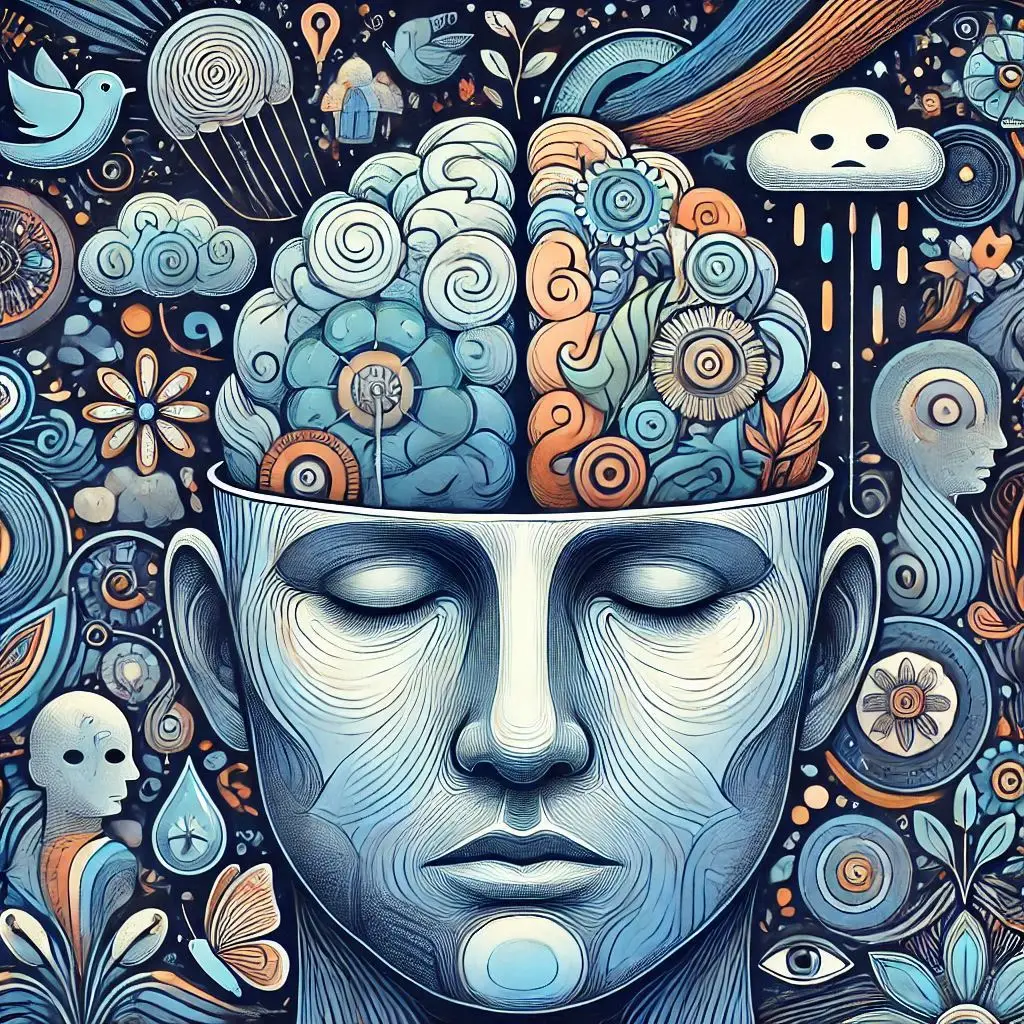In our busy, fast-paced world, it’s easy to focus all our attention on physical health—working out, eating well, and getting enough sleep. But what about mental health? Often overlooked or stigmatized, mental well-being is just as important as physical health for living a fulfilling life. Your mind and body are deeply interconnected, and taking care of one impacts the other.
In this blog, we’ll explore why mental health matters, how it affects your overall health, and practical steps to prioritize your mental well-being.
Why Mental Health is Just as Important as Physical Health
Mental health refers to your emotional, psychological, and social well-being. It affects how you think, feel, and act, and it also influences how you handle stress, relate to others, and make decisions. Mental health is not just the absence of mental illness; it’s also about feeling balanced, positive, and able to manage life’s challenges.
Here’s why taking care of your mental health is crucial:
- Impact on Physical Health
The connection between your mind and body is powerful. Chronic stress, anxiety, and depression can have negative effects on your physical health. For example, long-term stress can contribute to high blood pressure, heart disease, digestive problems, and a weakened immune system. By managing your mental health, you can improve your overall physical health as well. - Boosts Productivity and Focus
Mental health directly influences your ability to concentrate, solve problems, and stay motivated. When your mind is clear and positive, you can perform better at work, school, or in daily tasks. On the other hand, poor mental health can lead to burnout, lack of focus, and decreased productivity. - Improves Relationships
Good mental health helps you form healthy, positive relationships with family, friends, and colleagues. When you’re in a good mental space, you’re better able to communicate, empathize, and handle conflict. Poor mental health can strain relationships and lead to feelings of isolation, frustration, or misunderstanding. - Promotes Emotional Resilience
Taking care of your mental health builds emotional resilience, helping you cope with life’s inevitable challenges. Whether it’s dealing with a personal setback, managing stress, or navigating difficult times, mental well-being gives you the tools to stay strong and bounce back. - Enhances Overall Well-Being
When your mental health is prioritized, you experience an overall sense of well-being. You feel more positive, energetic, and content. You’re able to enjoy life, pursue your passions, and find meaning in your daily experiences.
Common Mental Health Challenges
Everyone faces mental health challenges at some point in their life, and it’s important to recognize when you might need support. Some common mental health issues include:
- Anxiety: Feelings of worry, nervousness, or fear that can interfere with daily life.
- Depression: Persistent sadness, loss of interest, and difficulty enjoying life or completing tasks.
- Stress: Overwhelming pressure from work, relationships, or life events.
- Burnout: Physical, emotional, and mental exhaustion often caused by prolonged stress.
- Mood Disorders: Conditions that affect your emotional state, such as bipolar disorder.
If you’re struggling with any of these issues, it’s important to reach out for help. Mental health is just as treatable as physical health, and there are plenty of resources available, from therapy to self-care practices.
Practical Steps to Prioritize Mental Health
- Practice Self-Care Regularly
Self-care is vital for mental well-being. It doesn’t have to be elaborate; simple things like reading a book, taking a warm bath, or going for a walk can make a difference. Find activities that help you relax and recharge. - Stay Active
Exercise is not just for physical health—it’s a powerful tool for improving mental health too. Physical activity stimulates the production of endorphins (the “feel-good” hormones), reduces stress, and helps fight symptoms of depression and anxiety. - Prioritize Sleep
Quality sleep is essential for good mental health. When you’re well-rested, you’re better able to handle stress, regulate emotions, and stay focused. Aim for 7-9 hours of sleep per night and practice good sleep hygiene. - Connect with Others
Social connections are critical for mental well-being. Spending time with family, friends, or joining social groups can provide emotional support, reduce feelings of loneliness, and improve your mood. If you feel isolated, don’t hesitate to reach out for help or consider joining online communities or support groups. - Manage Stress
Chronic stress can take a toll on your mental health. Finding healthy ways to manage stress, such as deep breathing, meditation, or mindfulness, can help reduce its impact. Regular relaxation practices can help you stay grounded and calm. - Seek Professional Help When Needed
If you’re experiencing ongoing mental health challenges or find it difficult to cope, consider seeking professional help. Talking to a therapist, counselor, or mental health professional can provide support, tools, and strategies to improve your mental well-being. There’s no shame in asking for help—it’s a sign of strength. - Engage in Activities You Enjoy
Make time for hobbies, interests, and activities that bring you joy. Whether it’s painting, cooking, gardening, or traveling, engaging in something you love can provide a mental boost and improve your overall sense of happiness.
Conclusion
Taking care of your mental health is just as important as taking care of your body. When you prioritize your mental well-being, you not only improve your emotional resilience and relationships, but you also boost your physical health and overall happiness. Mental health isn’t something to be neglected or stigmatized—it’s an essential part of a fulfilling, vibrant life. So, remember to check in with yourself, practice self-care, and seek help when needed. Your mind deserves just as much attention and care as your body.
